There’s no simple formula for getting published – editors’ expectations can vary both between and within subject areas. But there are some challenges that will confront all academic writers regardless of their discipline. How should you respond to reviewer feedback? Is there a correct way to structure a paper? And should you always bother revising and resubmitting? We asked journal editors from a range of backgrounds for their tips on getting published.
The writing stage
1) Focus on a story that progresses logically, rather than chronologically
Take some time before even writing your paper to think about the logic of the presentation. When writing, focus on a story that progresses logically, rather than the chronological order of the experiments that you did.
Deborah Sweet, editor of Cell Stem Cell and publishing director at Cell Press
2) Don’t try to write and edit at the same time
Open a file on the PC and put in all your headings and sub-headings and then fill in under any of the headings where you have the ideas to do so. If you reach your daily target (mine is 500 words) put any other ideas down as bullet points and stop writing; then use those bullet points to make a start the next day.
If you are writing and can’t think of the right word (eg for elephant) don’t worry – write (big animal long nose) and move on – come back later and get the correct term. Write don’t edit; otherwise you lose flow.
Roger Watson, editor-in-chief, Journal of Advanced Nursing
3) Don’t bury your argument like a needle in a haystack
If someone asked you on the bus to quickly explain your paper, could you do so in clear, everyday language? This clear argument should appear in your abstract and in the very first paragraph (even the first line) of your paper. Don’t make us hunt for your argument as for a needle in a haystack. If it is hidden on page seven that will just make us annoyed. Oh, and make sure your argument runs all the way through the different sections of the paper and ties together the theory and empirical material.
Fiona Macaulay, editorial board, Journal of Latin American Studies
4) Ask a colleague to check your work
One of the problems that journal editors face is badly written papers. It might be that the writer’s first language isn’t English and they haven’t gone the extra mile to get it proofread. It can be very hard to work out what is going on in an article if the language and syntax are poor.
Brian Lucey, editor, International Review of Financial Analysis
5) Get published by writing a review or a response
Writing reviews is a good way to get published – especially for people who are in the early stages of their career. It’s a chance to practice at writing a piece for publication, and get a free copy of a book that you want. We publish more reviews than papers so we’re constantly looking for reviewers.
Some journals, including ours, publish replies to papers that have been published in the same journal. Editors quite like to publish replies to previous papers because it stimulates discussion.
Yujin Nagasawa, co-editor and review editor of the European Journal for Philosophy of Religion, philosophy of religion editor of Philosophy Compass
6) Don’t forget about international readers
We get people who write from America who assume everyone knows the American system – and the same happens with UK writers. Because we’re an international journal, we need writers to include that international context.
Hugh McLaughlin, editor in chief, Social Work Education – the International Journal
7) Don’t try to cram your PhD into a 6,000 word paper
Sometimes people want to throw everything in at once and hit too many objectives. We get people who try to tell us their whole PhD in 6,000 words and it just doesn’t work. More experienced writers will write two or three papers from one project, using a specific aspect of their research as a hook.
Hugh McLaughlin, editor in chief, Social Work Education – the International Journal
Submitting your work
8) Pick the right journal: it’s a bad sign if you don’t recognise any of the editorial board
Check that your article is within the scope of the journal that you are submitting to. This seems so obvious but it’s surprising how many articles are submitted to journals that are completely inappropriate. It is a bad sign if you do not recognise the names of any members of the editorial board. Ideally look through a number of recent issues to ensure that it is publishing articles on the same topic and that are of similar quality and impact.
Ian Russell, editorial director for science at Oxford University Press
9) Always follow the correct submissions procedures
Often authors don’t spend the 10 minutes it takes to read the instructions to authors which wastes enormous quantities of time for both the author and the editor and stretches the process when it does not need to
Tangali Sudarshan, editor, Surface Engineering
10) Don’t repeat your abstract in the cover letter
We look to the cover letter for an indication from you about what you think is most interesting and significant about the paper, and why you think it is a good fit for the journal. There is no need to repeat the abstract or go through the content of the paper in detail – we will read the paper itself to find out what it says. The cover letter is a place for a bigger picture outline, plus any other information that you would like us to have.
Deborah Sweet, editor of Cell Stem Cell and publishing director at Cell Press
11) A common reason for rejections is lack of context
Make sure that it is clear where your research sits within the wider scholarly landscape, and which gaps in knowledge it’s addressing. A common reason for articles being rejected after peer review is this lack of context or lack of clarity about why the research is important.
Jane Winters, executive editor of the Institute of Historical Research’s journal, Historical Research and associate editor of Frontiers in Digital Humanities: Digital History
12) Don’t over-state your methodology
Ethnography seems to be the trendy method of the moment, so lots of articles submitted claim to be based on it. However, closer inspection reveals quite limited and standard interview data. A couple of interviews in a café do not constitute ethnography. Be clear – early on – about the nature and scope of your data collection. The same goes for the use of theory. If a theoretical insight is useful to your analysis, use it consistently throughout your argument and text.
Fiona Macaulay, editorial board, Journal of Latin American Studies
Dealing with feedback
13) Respond directly (and calmly) to reviewer comments
When resubmitting a paper following revisions, include a detailed document summarising all the changes suggested by the reviewers, and how you have changed your manuscript in light of them. Stick to the facts, and don’t rant. Don’t respond to reviewer feedback as soon as you get it. Read it, think about it for several days, discuss it with others, and then draft a response.
Helen Ball, editorial board, Journal of Human Lactation
14) Revise and resubmit: don’t give up after getting through all the major hurdles
You’d be surprised how many authors who receive the standard “revise and resubmit” letter never actually do so. But it is worth doing – some authors who get asked to do major revisions persevere and end up getting their work published, yet others, who had far less to do, never resubmit. It seems silly to get through the major hurdles of writing the article, getting it past the editors and back from peer review only to then give up.
Fiona Macaulay, editorial board, Journal of Latin American Studies
15) It is acceptable to challenge reviewers, with good justification
It is acceptable to decline a reviewer’s suggestion to change a component of your article if you have a good justification, or can (politely) argue why the reviewer is wrong. A rational explanation will be accepted by editors, especially if it is clear you have considered all the feedback received and accepted some of it.
Helen Ball, editorial board of Journal of Human Lactation
16) Think about how quickly you want to see your paper published
Some journals rank more highly than others and so your risk of rejection is going to be greater. People need to think about whether or not they need to see their work published quickly – because certain journals will take longer. Some journals, like ours, also do advance access so once the article is accepted it appears on the journal website. This is important if you’re preparing for a job interview and need to show that you are publishable.
Hugh McLaughlin, editor in chief, Social Work Education – the International Journal
17) Remember: when you read published papers you only see the finished article
Publishing in top journals is a challenge for everyone, but it may seem easier for other people. When you read published papers you see the finished article, not the first draft, nor the first revise and resubmit, nor any of the intermediate versions – and you never see the failures.
Philip Powell, managing editor of the Information Systems Journal
Enter the Guardian university awards 2015 and join the higher education network for more comment, analysis and job opportunities, direct to your inbox. Follow us on Twitter @gdnhighered.
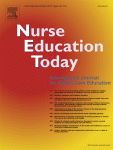
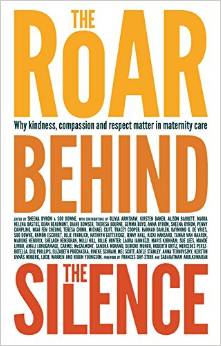



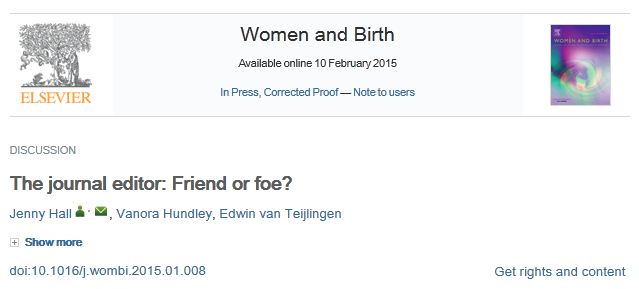

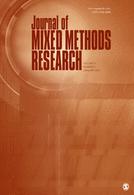
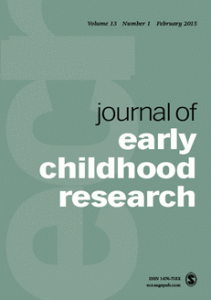
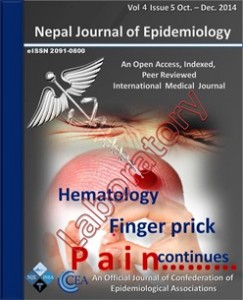

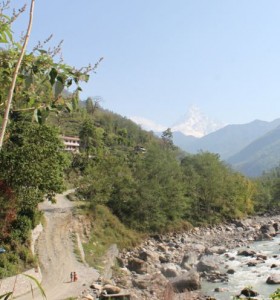
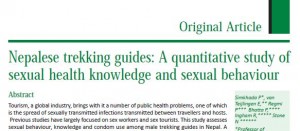

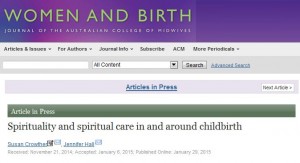

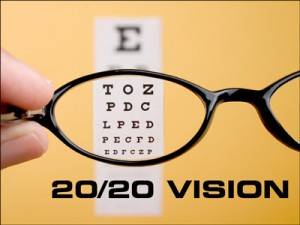

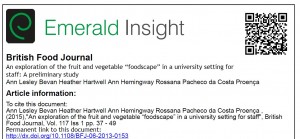
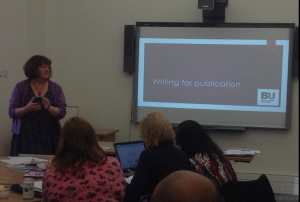
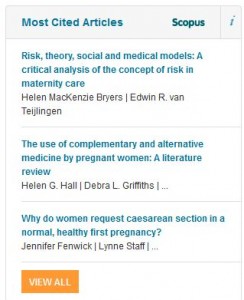











 New CMWH paper on maternity care
New CMWH paper on maternity care From Sustainable Research to Sustainable Research Lives: Reflections from the SPROUT Network Event
From Sustainable Research to Sustainable Research Lives: Reflections from the SPROUT Network Event REF Code of Practice consultation is open!
REF Code of Practice consultation is open! ECR Funding Open Call: Research Culture & Community Grant – Apply now
ECR Funding Open Call: Research Culture & Community Grant – Apply now ECR Funding Open Call: Research Culture & Community Grant – Application Deadline Friday 12 December
ECR Funding Open Call: Research Culture & Community Grant – Application Deadline Friday 12 December MSCA Postdoctoral Fellowships 2025 Call
MSCA Postdoctoral Fellowships 2025 Call ERC Advanced Grant 2025 Webinar
ERC Advanced Grant 2025 Webinar Update on UKRO services
Update on UKRO services European research project exploring use of ‘virtual twins’ to better manage metabolic associated fatty liver disease
European research project exploring use of ‘virtual twins’ to better manage metabolic associated fatty liver disease